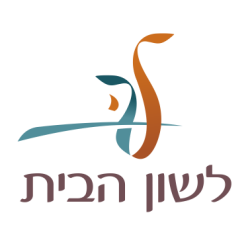The "Shasha" Ceremony

?A: šašša
Oh dear!
Every woman that gives birth,
in the sixth day (after the birthday),
for the purpose of the woman's health,
the woman and the child's,
they used to call the children,
and they used to distribute to them,
they used to mix seeds, and hummus (seeds), and almond, and pistachio,
they used to mix all this,
(and also) chocolate,
and they used to distribute it to the children.
This is called šašša.
and they used to break a jar,
or something of the kind (literally: see what they have).
(they used to take) its (broken) pieces,
they used to bring turmeric,
melt it with water,
and put it...
they used to spread the (broken) pieces (of a jar) with (this mixture, and give a piece
to) each one (of the children).
This is šašša.
B: What?
What did they do to the (broken) piece?
A: They used to bring this turmeric,
(and) to knead it,
and each child,
They used to spread his (broken) piece (of jar) with turmeric.
B: I have never heard of that.
I have never seen it.
C: Like henna?
A: Yes,
This turmeric is like henna.
B: And why did they use to do this?
A: (to protect) against the evil eye.
They used to do that on the sixth day (after the birth day).
B: Yes,
I know,
They used to do šašša,
But I don't know about turmeric.
A: They used to break a jar. (rhetorically: didn't they use to break a jar?)
B: Yes.
Of course. (rhetorically: otherwise?)
A: And they used to put it for them in the jar...
in the (broken) piece.
B: And they used to put corn (grains).
A: Corn (grains was put) with the šašša.
B: Yes.
C: And what is dǝqqāt?
B: Just a minute,
just a minute,
but...
What did they use to say?
šašša!
šašša!
A: Yes.
B: What did they use to scream?
What did they use to sing?
A: They used to sing:
šašša!
They children used to have fun.
"šašša and the house of their father is filled"1
.
The life in Iraq was really beautiful.
C: And what is dǝqqāt?
A: This was also on the sixth day,
either they used to bring talc,
or turmeric again.
they used to knead it as well,
and they used to (put it on the tip of their finger and to) hit (and paint) the wall with
it.
they used to make finger (shapes).
Seven dots.
This (was painted) against the evil eye over the head of the women (above her bed).








